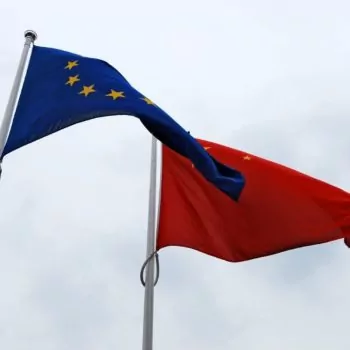European negotiators are set to agree on a package of legislation establishing important pillars of a European clean energy framework to 2030. This briefing presents everything you need to know to understand the final minutes of the negotiations between the European Parliament and Council on the energy efficiency directive and the renewable energy directive.
European climate and energy policies come in 'packages’, on a more or less ten-year cycle. Under the Juncker Commission, the co-legislators (Council and Parliament) were asked to agree on a set of legislation setting the vision for 2030. The framework is made of climate legislation (the Climate Action Regulation, the European Emissions Trading Scheme), the so-called clean energy package (on renewable energy, energy efficiency, Energy Union governance and electricity market design) and the transport package.
The ongoing negotiations on energy efficiency and renewable energy focus, mostly, on an update of existing rules. The main difference with the 2020 framework is the adoption of EU-wide targets instead of national binding targets for renewable energy. To compensate, the Commission has proposed Energy Union Governance – the only new piece of legislation currently under active discussion.
All eyes are on the renewable energy directive (RES-D) and the energy efficiency directive (EED). We expect a final deal on these two files tonight. The final discussion on the Governance regulation will be on 19th June, to be able to include the last evolutions in the EED and RES-D in the final package.
There is much at stake for energy efficiency and renewable energy. There has been a slow-down in renewable energy investments in Europe in recent years, while the rest of the world is catching-up very quickly. Europe risks losing its first-mover advantage if it does not sustain investments. For energy efficiency, the International Energy Agency is clear that energy efficiency is a must-have to decarbonise – and is needed at much bigger scale than what currently exists. Current investment levels are still too low to be able meet any 2030 energy efficiency target currently on the table, a massive boost of confidence is therefore needed.
While the current energy efficiency and renewable energy directives will not get Europe where it could be (the potential for energy savings is estimated at 40% for 2030 for instance), it is important to lock in ambition now. Energy targets higher than 30% will lead to an overshoot of the greenhouse gas target currently set at 40%. This new de facto greenhouse gas target is likely to be used as a baseline for the upcoming EU long-term Climate strategy for which a first draft is expected by the end of the year. Read together with a call by 7 countries for higher climate ambition and the recent governmental changes in Spain and Italy, one can expect a sustained debate on ambition starting in the second half of the year.
More details in the PDF.


